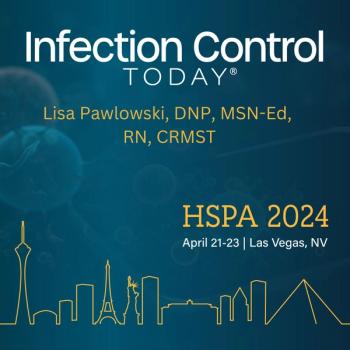
Lisa Pawlowski, DNP, MSN-Ed, RN, CRMST, presents a poster at the HSPA 2024 Conference highlighting an evidence-based bundle that reduces SSIs by improving post-use instrument care and storage practices.

Tori Whitacre Martonicz, MA, is the lead editor of Infection Control Today. She has been a writer and editor for over 30 years and has an MA and BA in English Composition/Literature from the University of Akron in Akron, OH. She lives in Ohio with her husband, Eric; son, Drake; 2 tiny dogs, Selena Brigid Sophia and Doctor Danger Dog; and a big black cat, Freya. She loves reading, writing, gardening, and spending time with her loved ones.
Contact her through her email: tmartonicz@mjhlifesciences.com.

Lisa Pawlowski, DNP, MSN-Ed, RN, CRMST, presents a poster at the HSPA 2024 Conference highlighting an evidence-based bundle that reduces SSIs by improving post-use instrument care and storage practices.
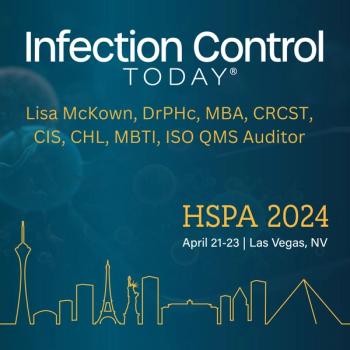
Explore the fusion of process monitoring and situation awareness in sterile processing, fostering informed decision-making for safe patient care from a presentation at HSPA24.
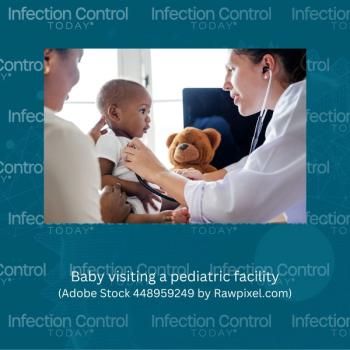
Danielle Zerr, MD, MPH, explains her presentations at SHEA 2024 about strategies for environmental pathogen control, the significance of patient-centered care in health care settings, and respiratory viruses in pediatric settings.
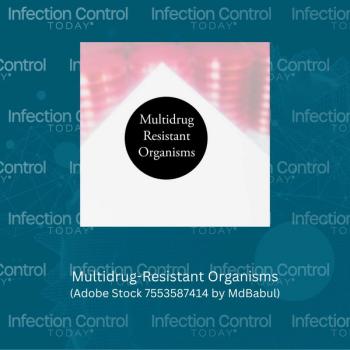
Tisha Mitsunaga, DrPH, ScM, discusses innovative approaches fostering collaboration between public health and healthcare facilities to combat multidrug-resistant organism (MDRO) spread.
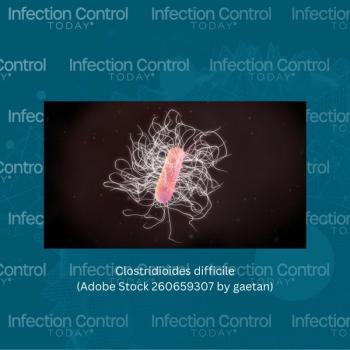
A study presented at the Society for Healthcare Epidemiology of America (SHEA) conference evaluated adherence to laxative administration guidelines before CDI testing in Veteran Affairs (VA) hospitals and explored associated demographic and contextual factors.
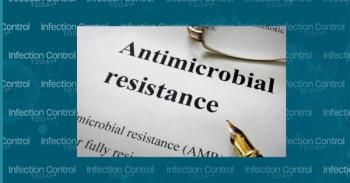
Discover strategies for advocating infection prevention programs to the C-suite, ensuring resources, leadership support, and impactful outcomes.

Ramon Zegpi Lagos, DVM, PhD, discusses H5N1 (avian flu), risks, transmission dynamics, preventive measures, and ongoing research at The Ohio State University.

Read on about how, as hospitals grapple with the costly burden of healthcare-associated infections (HAIs), artificial intelligence (AI) emerges as a game-changer in revolutionizing infection prevention strategies.

Merck's V116, a 21-valent pneumococcal vaccine, exhibits strong immunogenicity and coverage in diverse adult populations. Real-world data reveal its potential to combat pneumococcal diseases effectively.

Carole W. Kamangu, MPH, RN, CIC, shares her inspiring journey from the Democratic Republic of Congo to health care leadership in the US today. (This is the French translation of the interview with Carole W. Kamangu.)

Carole W. Kamangu, MPH, RN, CIC, shares her inspiring journey from the Democratic Republic of Congo to health care leadership in the US today.

Personal protective equipment (PPE) stands as the first line of defense against infectious diseases in health care. Yet, the issue of ill-fitting PPE, especially for women, remains a significant challenge.
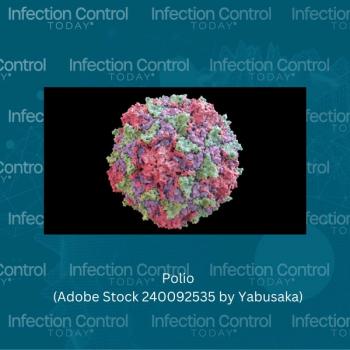
The fight against poliovirus continues with renewed urgency as recent surveillance data reveals both progress and persistent challenges. In a critical update, infection prevention personnel are presented with key insights into the ongoing battle against this scourge.
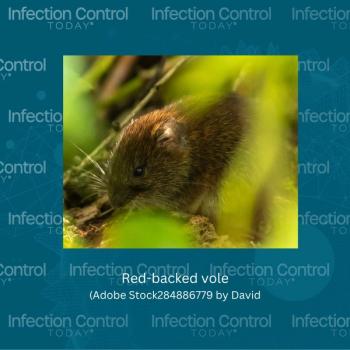
Discover Alaska's borealpox virus, formerly Alaskapox, now named for its ecosystem origins. Learn about this orthopoxvirus affecting humans and small mammals, with prevention insights.
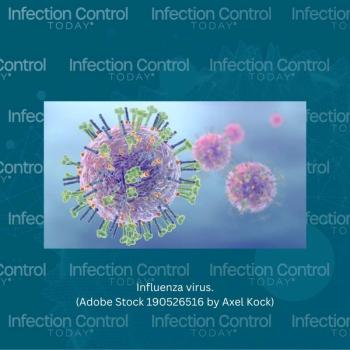
Discover the considerations behind CSL Seqirus' shift to trivalent influenza vaccines, removing B/Yamagata strain. Gregg Sylvester, MD, MPH, explains the impact on effectiveness and steps for a seamless transition in health care facilities.
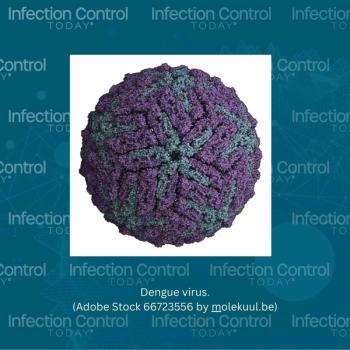
Puerto Rico declared a dengue public health emergency with 549 cases this year, up from 1293 in 2023. What should visitors and residents know to protect themselves?

IPs are keen to delve into the latest trends in environmental hygiene, with a focus on surface cleaning, air and water purification, product selection, and advanced UV-C technologies.

Anne Meneghetti, MD, highlights the misconceptions that drive individuals to seek antibiotics for common colds sooner than necessary.
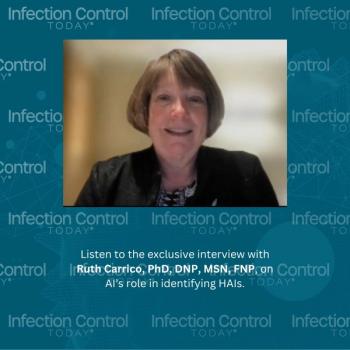
In an exclusive interview, Ruth Carrico, professor at the University of Louisville, and independent infection prevention consultant, discusses her groundbreaking study with Timothy L. Wiemken, PhD, MPH, CIC, on AI's role in identifying health care-associated infections and its implications for the field.

Infection Control Today (ICT) had the privilege of catching up with Vangie Dennis, MSN, RN, CNOR, CMLSO, at the Association of periOperative Registered Nurses (AORN) Global Surgical Conference & Expo 2024. As the former president of AORN and an esteemed figure in perioperative services, Vangie Dennis shared insights into her recent endeavors and the exciting new chapter she's embarked upon.
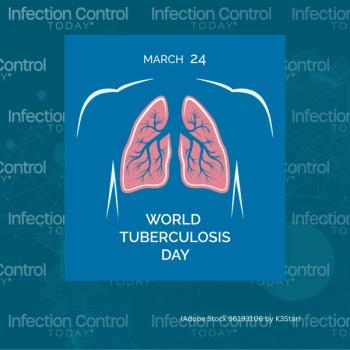
Infection Control Today observes World Tuberculous Day 2024 and encourages all infection prevention and control personnel to never give up the fight against this age-old disease.

Discover research by Peter Graves, BSN, RN, CNOR, and Maureen Spencer, MEd, RN, CIC, FAPIC, the lasting impact and hidden expenses of SSIs, shedding light on effective prevention strategies.
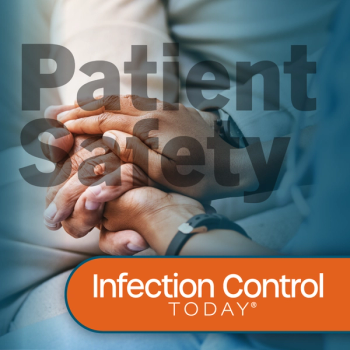
During AORN's 2024 conference, Michael Sinnott, MBBS, FACEM, FRACP, shared insights on enhancing safety education's impact. Learn how to engage audiences and ensure lasting lessons in health care instruction.

Patient safety is as important as staff safety. Yet, how do health care instructors get others to remember their lessons? One presentation, given by Michael Sinnott, MBBS, FACEM, FRACP, at the AORN International Surgical Conference & Expo 2024, had a unique suggestion.

At the AORN’s International Surgical Conference & Expo 2024, a team from Massachusetts General Hospital (MGH) showcased their transformative project, "Becoming Smoke-Free in the OR." This initiative underscored the critical need for smoke evacuation in surgical settings.

As explained on a poster at AORN 2024, perioperative nurses and infection preventionists unite in a proactive campaign to elevate hand hygiene within the operating room, resulting in improved adherence, decreased infections, and fortified patient outcomes.

Do operating room personnel understand the complexities of the sterile processing department? They rely on the sterile processing department for surgical instruments, but are they aware of its complexities and requirements?

Amidst the complex dance of scalpels and sterile fields in surgical theaters, a silent guardian stands vigilant—the surgical infection preventionist. Poster author, Charles Vickery, Jr, BSN, RN, CIC, CRST, of AdventHealth Central Florida, unveils the indispensable role of this health care sentinel at AORN's International Surgical Conference & Expo 2024.

At the AORN’s International Surgical Conference & Expo 2024, a presentation on surgical smoke drew applause and strong emotion about the continuing fight for legislation on removing surgical smoke from operating rooms. Infection Control Today was there to tell you what happened.

In the dynamic world of infection prevention and control (IPC), Erica Smith knows perioperative nursing and infection prevention. With a passion for supporting surgery centers and independent ASCs, her upcoming presentation dives deep into the common mistakes and challenges faced in IPC practices.